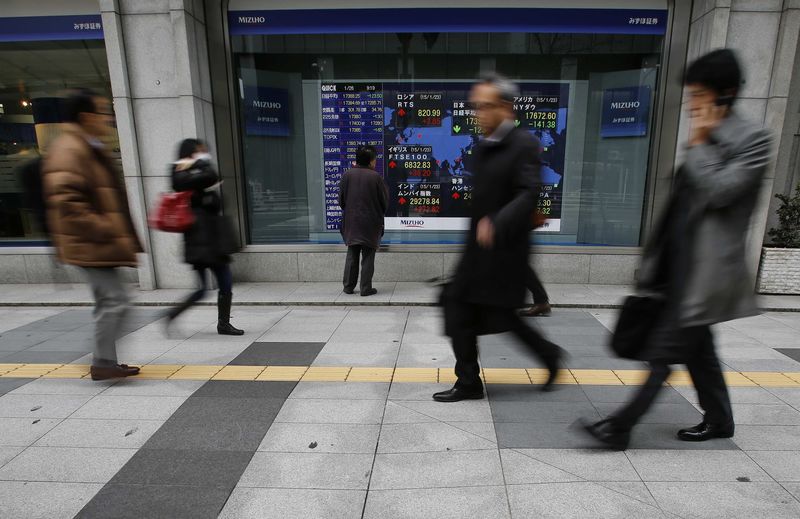By Gina Lee
Investing.com – Asia Pacific stocks were mostly down on Monday morning. Calm returned to markets even as investors continue to assess the risks to global economic recovery posed by the latest omicron COVID-19 strain.
Japan’s Nikkei 225 inched up 0.04% by 9:05 PM ET (2:05 AM GMT) and South Korea’s KOSPI was down 0.32%.
In Australia, the ASX 200 was steady at 7,279.30.
Hong Kong’s Hang Seng Index edged down 0.11%.
China’s Shanghai Composite was down 0.42% while the Shenzhen Component inched up 0.02%. A Peking University study said China would face a major surge in COVID-19 cases on a scale beyond anything any other country has yet seen if it were to reopen in a similar manner to the U.S.
U.S. shares were up, and the benchmark 10-year U.S. Treasury yield rose above 1.50%. These moves suggested that the market has calmed after riskier assets plunged on Friday over the discovery of the omicron strain of COVID-19.
Two South African health experts, including South African Medical Association chair Angelique Coetzee, suggested the omicron variant is presenting with mild symptoms so far. However, the World Health Organization cautioned that it will take time to assess the strain and has classified it as a "variant of concern”.
Moderna Inc. (NASDAQ:MRNA) chief medical officer Paul Burton said a reformulated shot for the new strain could be available in early 2022.
Whether the omicron outbreak is a brief scare or a more serious blow to an economic recovery already pressured by the prospect of tighter monetary policy is still open to debate.
“We really need some more answers to figure out the impact on growth. Risk assets are pricing in uncertainty,” TD (TSX:TD) Securities global head of rates strategy Priya Misra told Bloomberg.
Other investors were more optimistic.
“Markets have traded through all previous COVID-19 variants and just touched all-time highs. My expectation is we will do the same for this one,” Tribeca Investment Partners Pty. portfolio manager Jun Bei Liu told Bloomberg.
Investors last week pushed back the expected timing of a first 25-basis-point rate increase by the U.S. Federal Reserve to July from June 2022. However, Fed Bank of Atlanta President Raphael Bostic played down economic risks from a new COVID-19 variant, saying he was open to accelerating asset tapering to curb rising inflation.
